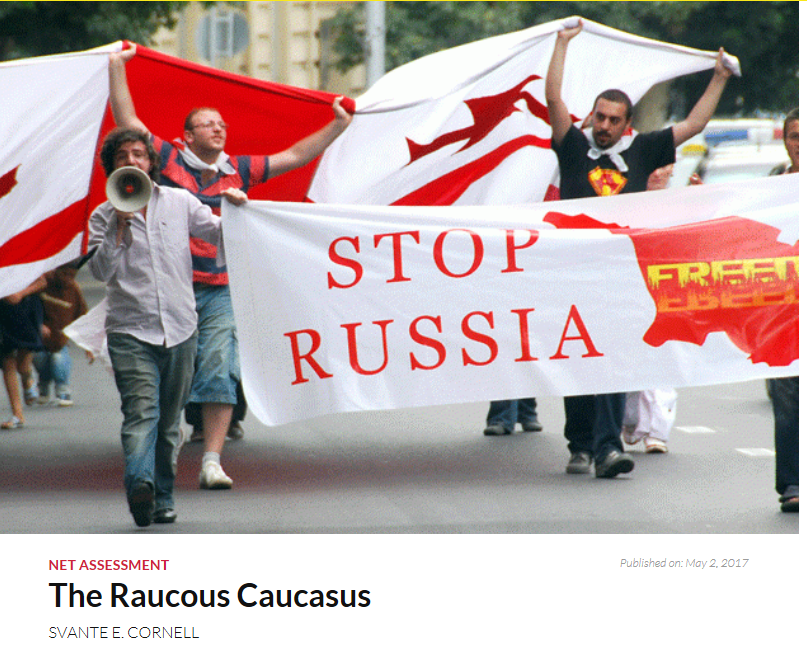[Video Posted] CACI Online Forum: Stress Test for the Eurasian Economic Union
Stress Test for the Eurasian Economic Union
Only recently many considered large, integrated economic and political zones to be signs of the future. But the collapse of oil prices, the COVID-19 pandemic, and new forms of multipolarity are refocusing many on national needs and global rather than bloc developments. Given this, how does the Eurasian Economic Union look today? What is its future for members, and how should non-members regard it? This Forum will address these and related questions.
Speakers:
Stephen Blank, Foreign Policy Research Institute
Mamuka Tsereteli, Senior Fellow, Central Asia-Caucasus Institute at AFPC
Moderator: S. Frederick Starr, Chairman, Central Asia-Caucasus Institute at AFPC
When: Thursday, May 28, 2020 at 11am EDT
The event was live-streamed on our Facebook page and is now available on Youtube.
The Raucous Caucasus
Article, The American Interest, May 2, 2017
Svante E. Cornell,
The United States must restore its leverage and credibility in the restive region caught between Russia, Turkey, and Ira

Asserting Statehood: Kazakhstan's Role in International Organizations
Current Dynamics in Eurasia Region: Political and Economic Implications
CACI FORUM
Current Dynamics in Eurasia Region: Political and Economic Implications
Monday, 4 May 2015, from 5 to 7 PM
You may view a recorded version of this CACI Forum below or on the SAIS events YouTube channel.
Recent developments in the Eurasia region demonstrate that regional superpowers stepped into a vigorous race for shaping a geopolitical picture that suits their own political interests and security considerations. Russia has formed a union of allies that helps to destabilize countries that did not pledge their loyalty to Russia: the Eurasia Economic Union, established by Russia, Belarus and Kazakhstan, will extend its borders as far as Armenia and Kyrgyz Republic (pending ratification in May). Thus Russia uses political and military leverage to form a comfort zone in the Caucasus and Central Asia; meanwhile, China uses trade and massive infrastructure projects financing to increase influence in Central Asia and Mongolia. At the same time, the European Union has been cooperating with Ukraine and republics in the Caucasus to sign EU association agreements on free trade within the European Union.
Countries in Central Asia, Caucasus and Mongolia are at the crossroads of choosing their destinies. What will be the future of the region? What will be the role of Eurasian Economic Union? Will China’s role in Central Asia grow?
CACI Rumsfeld fellows will discuss possible scenarios of development in the Eurasia region, with relevant political, social, and economic implications, based on their personal experience in public sector and business.


